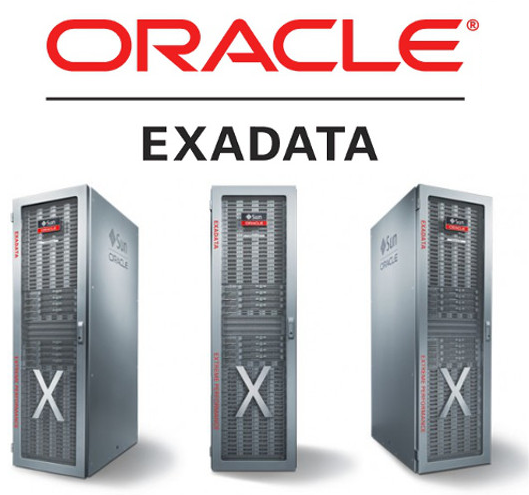Health Analytics – White Paper
Industry Viewpoint Healthcare Achieving data value without the “data pain” Data-driven Health & Social Care
Summary
It is well understood that linking data sets together within services and more widely across healthcare can significantly improve outcomes for patients and staff. Joining up the different data silos opens the possibility to understand the end to end patient journey and generate actionable insights into population health and earlier identification of disease risks. These insights can empower people to take action to prevent illness and support more effective resource management across services.
Currently, data does not flow easily within and across health and care settings. Although there have been pockets of innovation across the system, challenges exist in scaling these initiatives to deliver impact. Data quality is often a core challenge. There are often technical challenges in linking data sources together. Moreover, programmes are often constrained by the bandwidth of the IT department and there are often challenges to connect the value of these initiatives to deliver beneficial impact to the ‘frontline’.
To support Health Care organisations in overcoming some of these challenges, Oracle is actively collaborating with services to ensure that the full potential of data is realised. The Oracle co-innovation programme (entitled ‘Data+’) has been tried and tested in the NHS and more broadly across other industries over several years. Employing a collaborative ‘multi-disciplinary team’ approach to solving the highest value data challenges, the programme delivers a proof of concept and an associated business case that demonstrates the value of innovative ideas – leveraging leading-edge technologies such as Machine Learning (ML) and Artificial Intelligence (AI).
Healthcare & Life Sciences
Health and care services generate billions of data items every single day; data which is collected by multiple agencies across primary, secondary, community, social care and other public services (e.g. housing services, policing etc) all of which is hard to correlate and exploit. With the addition of new digital and model channels, the inclusion of social media and wearable devices now opens a new world of insight previously unavailable. Yet, most of this data is under-utilised, it sits in disparate in unlinked silos, it varies in quality, it often is not standardised and there are complex issues over its ownership.
One of the key enablers of addressing these challenges is leveraging value from a new generation of technologies. Imagine if the NHS could really put this data to work to generate actionable insight: Imagine predicting with an extraordinary degree of accuracy the likelihood of disease across populations. We could then run more effective screening programmes to prevent illness or intervene early with those at highest risk.
Imagine we could have insight into care variations from pathway to pathway together with the associated effect on patient outcomes. We could then really understand what treatments work and drive efficiency in spend. Imagine if we could obtain a holistic view of local activity to predict staffing requirements more accurately across health and care. We could then foresee spikes in activity and know in advance which services require extra resourcing. This is all possible if healthcare organisations can leverage digital technologies and take advantage of data effectively, and become data-driven.
“It’s not just about gearing the current systems to work better – our ambition should be for the use of the best technology available for the NHS and social care sector. The potential of cutting-edge technologies to support preventative, predictive and personalised care is huge,”
Department of Health & Social Care, October 2018. The future of healthcare: our vision for digital, data and technology in health and care
Data opportunities within Healthcare
AI refers to the simulation of human intelligence in machines that are programmed to think like humans and mimic their actions. The term may also be applied to any machine that exhibits traits associated with a human mind such as learning and problem-solving. ML is a specific subset of AI that focuses on learning, reasoning, and decision-making. The technologies use statistical models to make predictions (or decisions) without being explicitly programmed to perform the task. The computer ‘learns’ as it increases its data reference points – this is also referred to as predictive analytics.
This fast-developing area of technology is hugely relevant for health and care in view of the wealth of data it captures. The analytics capability – which enables rapid analysis of huge datasets, delivering proactive identification of unwarranted variation in, for example, patient pathways, prescriptions, and cost anomalies – is an area the health and social care sector must progress.
This goes beyond the structured data, opening the opportunity to combine structured and unstructured data, such as Natural Language Processing (NLP), image analysis and Sentiment Analysis.
Scope of impact
Although the potential for data innovation is significant, gearing real-life value from these initiatives has its challenges. Some of the main reasons why data innovation programmes fail to achieve value are:
- Data quality is often a core challenge. Complicated by the fragmentation of data collection approaches and data ‘stovepiping’.
- There are often technical challenges, such as linking data sources together sitting in disparate systems.
- There are also capability challenges as the volume of data increases, point solutions have limited capability versus AI/ML enabled platforms.
- Programmes are often perceived to be constrained by available expertise in IT
- Data analysts not directed and focused on specific business challenges to solve and are being left to their own devices to hunt down “golden nuggets” of value.
- Data is often siloed within departments which are protective about their data and don’t see the value in sharing their data with others.
- Data innovation projects tend to be led by specific team and miss out on engaging a ‘multi-disciplinary team’ to co-design the approach and evaluate the outcome.
- There are often challenges to operationalise learning models and connect the value back to the ‘business’ or to developers who can create business applications.
The Converged Database
Oracle’s cloud-based digital platforms can integrate any data sources into a comprehensive data platform that supports AI and ML to deliver business value. Data which had previously been locked in silos can now be released and given a voice to help drive better outcomes across the NHS.
As part of this, Oracle converged database has native support for all modern data types and the latest developments all built within the one product. The database supports Spatial data – location awareness, JSON for document stores, IoT for device integration, in-memory technologies for real-time analytics, and traditional relational data. By providing support for all these data types, a Converged Database can run workloads from IoT, Blockchain and analytics with Machine Learning built-in.
By integrating various data types, workloads, and algorithms within the database, this enables mixed workloads in a simple and scalable manner. With all the data within one database, there is less need to manage and maintain multiple systems enabling unified security across the data.
Oracle: Co-innovation at speed
Oracle has developed a co-innovation methodology (entitled Data⁺) to support healthcare organisations in addressing these challenges and to ensure that the full potential of data is realised within their organisation. Together, we explore, frame, design, prototype, and prove technical feasibility over the course of 8-weeks to present evidence to key stakeholders.
The objective of the methodology is to frame a business challenge with significant business value so that we build a prototype and show evidence that we can solve that challenge. The idea is to improve everyone’s confidence by doing rather than talking.
The prototype will typically focus on two things:
- Solving an immediate business challenge with data innovation by collecting the appropriate data sets and applying machine learning techniques.
- Using the data sets above and exploring other business challenges that we may be able to solve by adding one or more additional data sets.
Data+ brings many benefits to healthcare organisations:
- Demonstrates how to solve real-life challenges by using data in new and innovative ways
- Provides a repeatable process that tests the technical feasibility of any data-driven idea
- Creates a blended team of data analysts, developers, managers, and clinical leads
- Develops a validated business case to show the value of data in terms of process optimisation and new opportunities
- Creates a solid foundation on which to test the desirability, viability, and feasibility of a data-driven idea.
The philosophy of Data+ is for Oracle and healthcare to work together to agree on the business challenge. With that challenge in mind and a clear idea of what needs to be proved so that all stakeholders have an increased sense of confidence in the desirability, viability, and feasibility of solving the business challenge through data innovation.
Having a collaborative process and a blended team is no good unless they can work on a platform that can execute the ideas. Oracle combines any data source and any data structure into a single data platform that enables the inbuilt AI and ML tools to release valuable insight from your data. Data which had previously been locked in silos can now be released and given a voice to help and new business value across the organisation.
Moving beyond innovation
Since its inception nearly 40 years ago, Oracle has invested deeply across nearly every element of information management – from software to hardware and to the innovative integration of both on-premises and cloud-based solutions. Oracle’s unique value is its long history of engineering the broadest stack of enterprise-class information technology to work together—to simplify complex IT environments, reduce total cost of ownership, and to minimise the risk when new areas emerge.
Vertice is an Oracle Platinum partner specialising in data integration, data management and analytics. With a proven, award-winning partnership, Vertice look to move from innovation through to production. Ensuring solutions are secure and scalable to enable actionable insight to be brought to the front line.
Conclusion
Health and care services are facing unprecedented pressure. Joining up data sets within services and across the system can generate actionable insight that enables new and more efficient services to relieve these underlying pressures. However, the challenge for many services is the lack of organisational bandwidth to explore, identify, deploy, and get value from these potential data innovations.
This is where Oracle and their partner Vertice can help. Through our Data+ programme and enable deployment, we are actively collaborating with organisations to ensure that the full potential of data is realised. Solving immediate business challenges with data innovation by collecting the appropriate data sets and applying Machine Learning techniques to ensure value is delivered early.
From discovering data sources, ingesting, transforming, and returning them and getting the analysis and insight to empower decision making. Oracle has more experience of platform transformation projects than any other provider; with over 20,000+ engagements globally.
Oracle is unique in its ability to deliver powerful solutions to all critical areas of challenge in the healthcare industry. Oracle’s family of data management solutions continue to solve the toughest technological and business problems delivering the highest performance on the most reliable, available, and scalable data platforms.
Use Case
Example: Identifying £1.2 billion in potential savings
The Department of Health asked the NHS BSA to take a proactive role in identifying opportunities to reduce costs and eliminate waste. One way to do this was to and better ways to use the vast volumes of data already collected and held within the organization to help reduce fraud and error throughout the health service.
The NHS BSA needed a new, centralized solution that would enable it to gain better value from its data which is spread across a disparate set of IT systems, data, storage, and analytical capabilities. To achieve this, it chose an end-to-end Oracle solution platform to establish its Data Analytics Learning Laboratory (DALL), investing in both technology and expertise to create insight from its data. Within the first three years of operation, the organisation identified circa £1.2 billion in potential savings.
“We chose Oracle because the solution could cope with very large data volumes running into billions of rows and could scale as volumes increase. In addition, the Oracle solution required no IT team support to run the queries, which enables our team of data analysts to be self-sufficient,”
Nina Monckton, Chief Insight Officer, NHS Business Services Authority
How Oracle supported the execution
Oracle ran a proof of concept (POC) to show the speed and capability of the proposed end-to-end solution. The POC used publicly available data sets for NHS prescription data. It covered 50 million prescribed items, 300 million records, and six months of data. The team concentrated on ending anomalies in the data and carrying out further analysis to understand them before presenting the endings in a clear and straightforward way.
Following the POC, Oracle worked with NHS BSA and its data centre partner, Capita, to complete the implementation. During implementation, Oracle provided the NHS BSA with access to a virtual environment. This enabled the team to get some experience with the tools before completing the implementation. As such, NHS BSA was familiar and confident with using the new analytics tools from day one, saving considerable time and gaining immediate value.
“Working with Oracle has been a very positive experience. The team has been incredibly responsive and provided a number of experts to help us get up and running as quickly as possible. With one vendor providing the whole solution, it’s very easy for us. If we need help, we know where to go.”
Nina Monckton, Chief Insight Officer, NHS Business Services Authority
About the Author
Dr. Abi Giles-Haigh is the Chief Data Science Officer at Vertice. She has over 10 years’ experience working with data from database management, report writing and advanced analytics. Previously she was part of the Data Analytics Team at the NHSBSA identifying savings and improving patient care. She is an Oracle ACE Director, UKOUG Technical Speaker of the Year 2016, as well as a Nominated Digital Leader 100. Abi is a technical evangelist in the field of predictive/prescriptive analytics and data mining. She holds a PhD in Computational Modelling and a Bachelor of Science in Computing Science, from Newcastle University.
If you have any questions, don’t hesitate to get in touch



